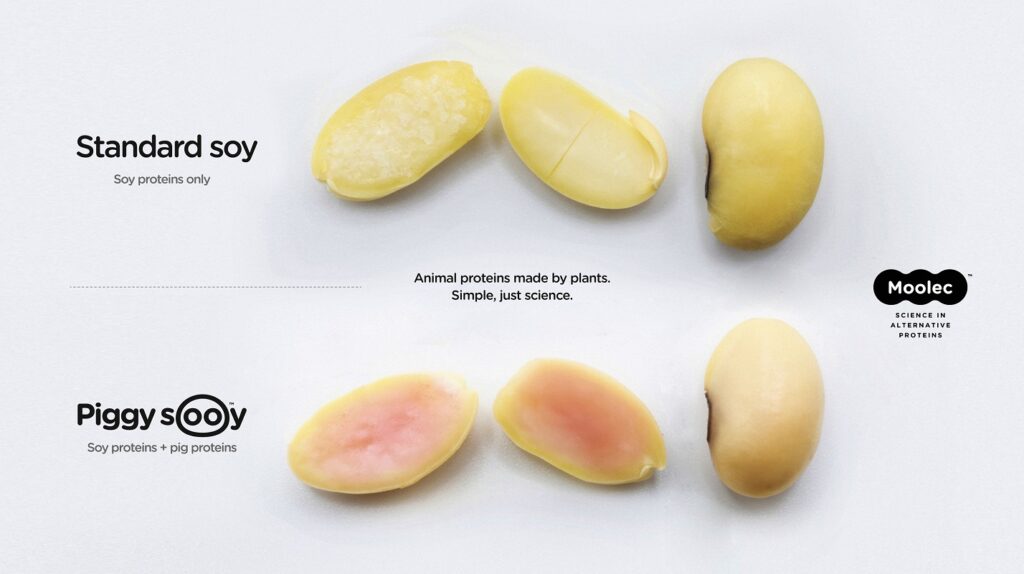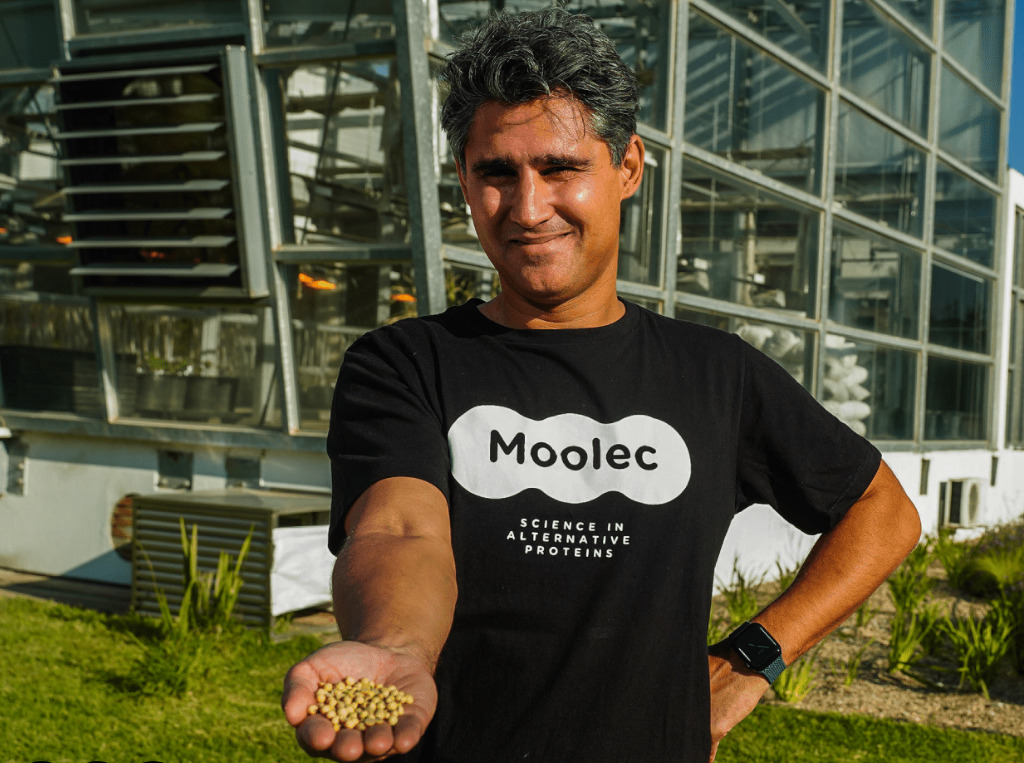Pork Soybean Startup Raises $30M to Produce More Animal Proteins via Plants
4 Mins Read
Warwick-based startup Moolec Science, which makes animal proteins using plants through molecular farming, has raised $30M in cash and kind from investors via convertible notes. It comes months after the company unveiled soybeans that contained pork proteins.
Moolec Science has entered an agreement with Grupo Insud to issue a convertible note due in 2026 worth $21M, with a strike price of $6 per share. This will be issued against a cash payment of $10M and in-kind contributions to be made by Grupo Insud to Moolec, which include credits to access Insud’s state-of-the-art industrial capabilities. The two companies formed a precision fermentation joint venture in 2021.
It follows a deal with Bioceres Crop Solutions – which Moolec spun off from as a seed startup – which will secure the supply of about 15,000 tons of soybeans, paid for via a convertible note. In total, the convertible notes amount to $30M in cash and in-kind contributions, which include soybean inventories, operational services and the acquisition of joint venture equity.
“This capital raise strengthens our financial position and allows us to accelerate our business model in a challenging financial market. The notes provide healthy optionality for Moolec to convert into common shares or cash in three years’ time,” said Mooled CFO José López Lecube. “Cash proceeds will be used to continue funding key R&D projects and in-kind contributions will secure the needed working capital to ramp up our commercialisation plan and product development initiatives.”
Transforming safflower into dairy proteins

Moolec, which began trading on Nasdaq in January via a merger with special purpose acquisition company (SPAC) LightJump, has a market cap of over $100M but has seen its stock drop from a nearly $20-high to under $3 recently.
Launched in 2021, the company is known for its molecular farming capabilities. It’s a process that produces proteins using plants instead of animals – plants are modified to replicate the desired proteins, and then harvested from the leaves or other tissues.
It bioengineers plants like soybeans and yellow peas to produce bovine and porcine proteins that enhance the flavour, texture, colour and nutrition of plant-based meat. But its most advanced innovations are a bovine chymosin protein (used in cheese) and a nutritional oil rich in GLA (an omega-6 fatty acid), both of which are produced through a strain of safflower using a patented tech called SPC.
The latter has already received a ‘no questions’ letter from the US and Drug Administration, which affirms its GRAS (Generally Recognized as Safe) status in the US. It has been approved by the USDA’s Animal and Plant Health Inspection Service too, which means Moolec can import, move between states and grow plants in the US.
Commercialising molecular meat proteins

Meanwhile, Moolec’s Meat Replacement Program made a breakthrough earlier this year, producing soybeans that taste like pork. The tech yielded 26.6% of the total soluble protein in soy seeds via its newly developed Piggy Sooy, surpassing its initial projections by fourfold. The beans have a pink hue akin to that of pork, and Moolec is seeking a patent for the tech that will also help facilitate a smoother regulatory pathway.
“This achievement opens up a precedent for the entire scientific community that is looking to achieve high levels of protein expression in seeds via Molecular Farming,” Amit Dhingra, Moolec’s chief science officer, said at the time. “This platform has the potential to be used across a wide variety of proteins of interest for a broad range of industries, such as the pharma, cosmetic, diagnostic reagents, and other food industries.”
Moolec CEO Gastón Paladini told AFN that the company plans to focus on more meat molecules and proteins in multiple R&D projects. And instead of extracting and purifying the animal protein from these ingredients, it plans to sell the soy and pea proteins with the meat proteins embedded in the matrix.
“Moolec’s plan is not to purify and extract the target molecule the plant expresses,” he told AFN. “It makes sense for us to produce hybrid ingredients between plant and animal proteins, together. Affordability and functionality are our top priorities. And Moolec is targeting the whole processing meat market, not just the alternative protein market.”
The startup is working on developing meat proteins using yeast fermentation. It’s in talks with companies like ingredient processors for partnerships that could see Moolec license its IP, or work with them in downstream processing to recover and commercialise the proteins using their networks. But Moolec also has its own industrial facility in Argentina that could help it commercialise, with the ability to crush 10,000 tons of soybeans per year.
“We all share the common purpose to redefine the way we produce animal-based food, for good and for all. These engagements reinforce our vision and our shareholders’ long-term commitments while motivating Moolec’s Team to achieve the milestones to come,” said Moolec CEO Gastón Paladini.
Other startups working with molecular farming include Nobell Foods, Tiamat Sciences (both US), Miruku (New Zealand), ORF Genetics (Iceland) and Bright Biotech (UK), among others.



